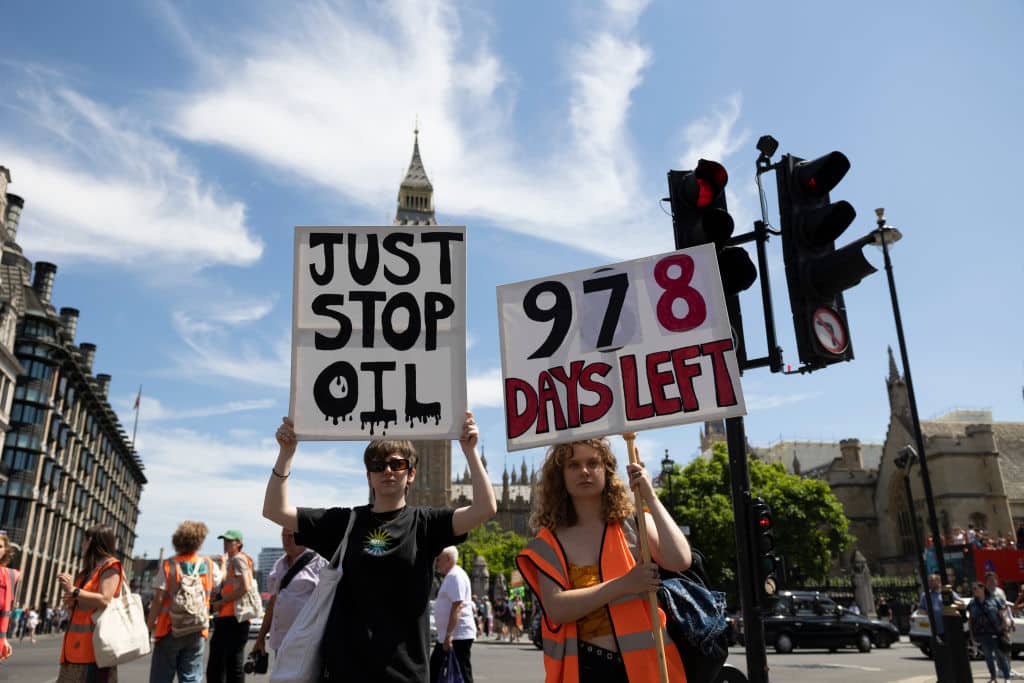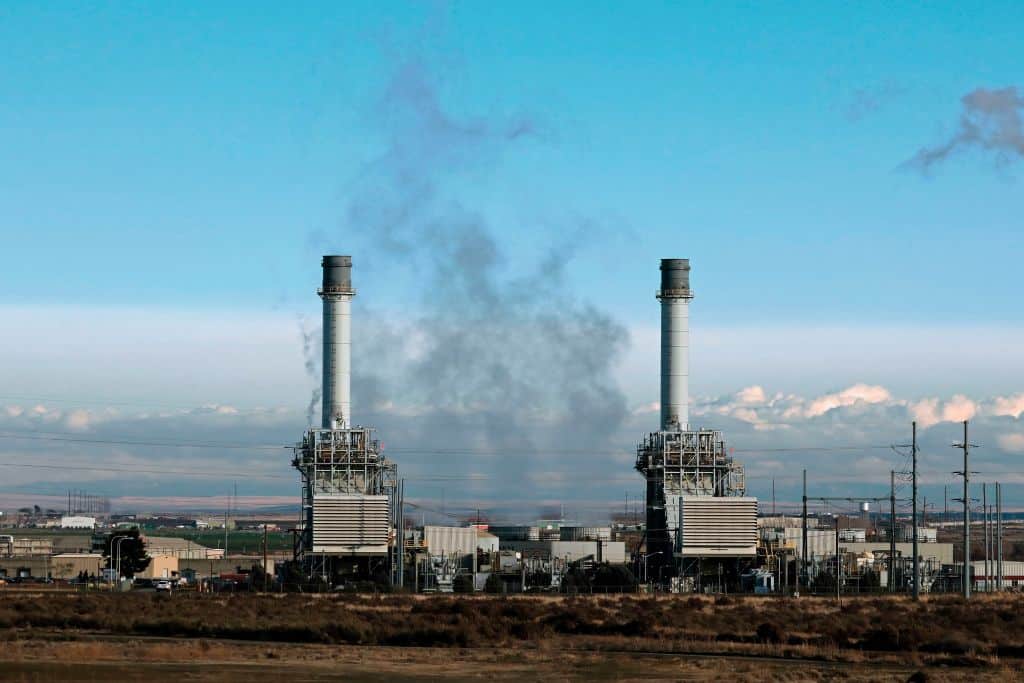Fossil Fuel Subsidies Nearly Doubled in Major Economies Between 2020 and 2021

 Why you can trust us
Why you can trust us
Founded in 2005 as an Ohio-based environmental newspaper, EcoWatch is a digital platform dedicated to publishing quality, science-based content on environmental issues, causes, and solutions.
Despite growing awareness of the climate crisis, fossil fuel subsidies actually rose significantly in 2021–increasing by almost half.
The reason, say the Organisation for Economic Co-operation and Development (OECD) and the International Energy Agency (IEA), is that the governments of major economies scrambled to help their residents in the wake of soaring energy costs.
“Fossil fuel subsidies are a roadblock to a more sustainable future, but the difficulty that governments face in removing them is underscored at times of high and volatile fuel prices,” IEA Executive Director Fatih Birol said in a statement. “A surge in investment in clean energy technologies and infrastructure is the only lasting solution to today’s global energy crisis and the best way to reduce the exposure of consumers to high fuel costs.”
The new analysis, from OECD and IEA, looked at 51 major economies including the OECD and G20 countries, as well as 33 other countries that both produce and consume a significant amount of energy. The analysis covered approximately 85 percent of the world’s total energy supply. In these countries, fossil-fuel subsidies rose from $362.4 billion in 2020 to $697.2 billion in 2021. The subsidies are expected to rise even further in 2022 because energy prices and consumption are both rising too.
In 2021, fuel prices increased as the world recovered from the coronavirus pandemic and subsequent lockdowns, The Guardian reported. This led governments to try and use subsidies to reduce consumer prices. However, these subsidies don’t necessarily benefit people struggling the most, since wealthy households tend to burn more energy.
The analysis does not yet cover 2022, when Russia invaded Ukraine and drove oil and gas prices even higher.
“Russia’s war of aggression against Ukraine has caused sharp increases in energy prices and undermined energy security. Significant increases in fossil fuel subsidies encourage wasteful consumption though, while not necessarily reaching low-income households,” OECD Secretary-General Mathias Cormann said in the statement. “We need to adopt measures which protect consumers from the extreme impacts of shifting market and geopolitical forces in a way that helps keep us on track to carbon neutrality as well as energy security and affordability.”
The current energy crisis has revealed the volatility of relying on fossil-fuels for energy. In the UK, households face an 80 percent increase in the price cap for home energy this October, an increase that could have deadly consequences. However, a Carbon Brief analysis written in July said that new wind energy paid for by auction in the UK was nine times cheaper than gas.
Environmental groups argue that countries should not respond to the current crisis by doubling down on fossil fuel subsidies.
“A period of soaring fossil fuel energy prices, when oil and gas companies are posting record-breaking profits, should be the ideal time for governments to eliminate fossil fuel production subsidies – so to see rising government support for fossil fuels now is infuriating,” Gyorgy Dallos of Greenpeace International said, as The Guardian reported. “Governments need to stick to their green pledges. On the consumer side, they urgently need to replace untargeted support measures with targeted income support to people experiencing fuel poverty.”

The analysis was based on two datasets. The OECD dataset focused on tax breaks and budget transfers for fossil-fuel production in G20 countries, according to the statement. It found that, between 2020 and 2021,
- Overall support rose from $147 billion to $190 billion
- Consumer support rose from $93 billion to $115 billion
- Producer support “reached levels not previously seen in OECD tracking efforts” and climate to $64 billion.
The IEA dataset looked at consumer subsidies by comparing international market energy prices to domestic consumer prices in 42 countries. It concluded that consumer support had risen by a factor of more than three from 2020 levels to $531 billion in 2021.
“The OECD and IEA have consistently called for the phasing out of inefficient fossil fuel support and re-direction of public funding toward the development of low-carbon alternatives alongside improvements in energy security and energy efficiency,” the two organizations concluded.
G20 countries have pledged to phase out “inefficient” fossil fuel subsidies and the G7 countries pledged to end most of these subsidies by 2025, according to The Guardian. However, the recent IEA and OECD analysis suggests that they are not on track to do so.
Subscribe to get exclusive updates in our daily newsletter!
By signing up, you agree to the Terms of Use and Privacy Policy & to receive electronic communications from EcoWatch Media Group, which may include marketing promotions, advertisements and sponsored content.

 233k
233k  41k
41k  Subscribe
Subscribe 




